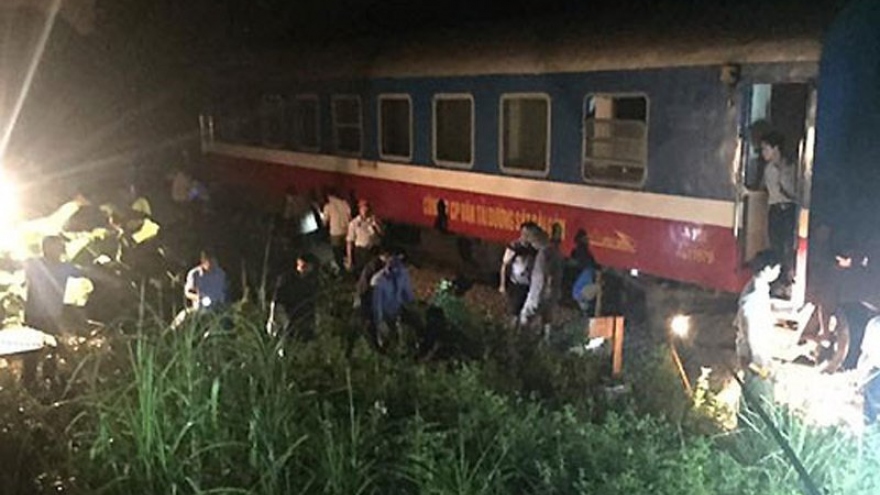Vietnam adds cameras, brake valves following series of train derailments
Speedy drivers and poor infrastructure were blamed for a number of incidents last month.
 |
Under a trial program, safety valves have been attached to train cars which will automatically open at the instance of derailment to release air pressure to apply the brakes so that the train can be stopped in the shortest possible time and distance.
Surveillance cameras have been installed in train locomotives to record their speed, how the drivers alert other vehicles and how they act in risky areas, e.g. at road crossings.
The cameras will also record the performance of guards at crossings.
Doan Duy Hoach, Deputy General Director of Vietnam Railways, said recent derailments happened due to both unsafe infrastructure and speedy drivers not following regulations.
A series of derailments threatening the life of hundreds of travelers have been reported this year.
Most recently on September 10, a train carrying more than 200 people derailed when it was entering a station in the central province of Thanh Hoa, damaging one of its cars and causing the train to be four hours late. Many train routes were affected.
At least three similar incidents were reported a month ago.
On August 6, a train carrying 100 passengers traveling from the northern province of Lao Cai derailed as it was entering a station on Hanoi outskirts. It went off the track at the same spot on the way back the next day. Investigation found the driver was speeding and rail maintenance did not meet quality requirements.
On August 9, a freight train derailed on Hanoi outskirts also due to poor road conditions.
Vietnam had one of the first modern railway systems in Asia, built by the French between Saigon and the nearby My Tho in 1881, but the transport has lost popularity with poor investment in recent years.
Between 2011 and 2015, only 3 percent of the state budget’s infrastructure investment went to rail transport, while roads received nearly 90 percent.
With lack of funding, most of the rail network in Vietnam still runs on the narrow one-meter gauge, a design that has been blamed for regular train crashes. The network is also a safety threat due to the large number of unmonitored level crossings.
The railway’s share of the transport system has shrunk from 30 percent in the 1930s to less than 2 percent.
In an attempt to bring back the glory, Vietnam lawmakers passed amendments to the Railway Law in June, promising incentives to investors in the system.
Some companies have also taken initiatives by offering first-class trips with restaurant cars like the five-star train service launched this year from Ho Chi Minh City to the coastal resort town of Nha Trang or from Hanoi to the northern highlands town of Sa Pa.



